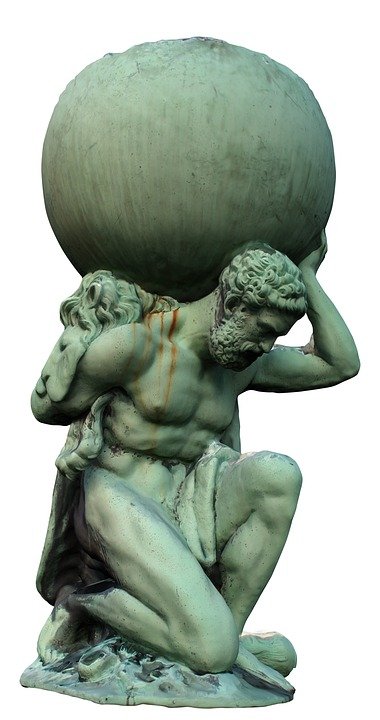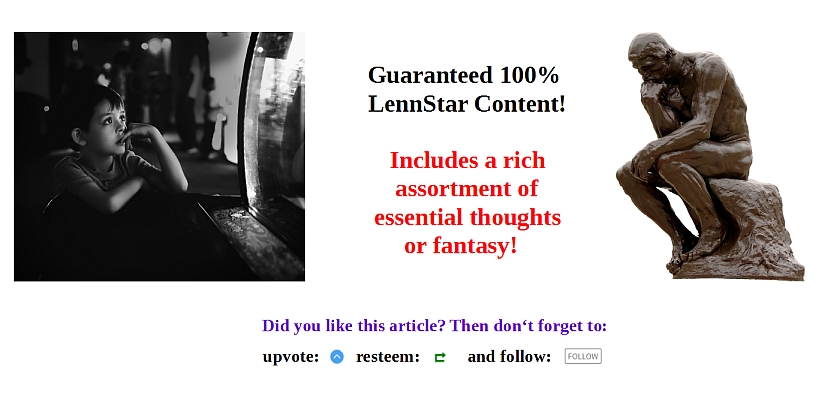How the Chicago School of Economics has Destroyed the Economy
The Chicago School of Economics – or the Neoliberals as we in Europe call this economic thought – has risen since the 1970.
Basically this economic thought teaches that we should lower taxes for the rich and especially for the big corporations and that we should lower wages to decrease corporation’s cost further. Then, so they argue, the corporations will grow rich and that richness will trickle down to even the poorest.
Of course this model – the supply oriented model – has a few little problems, especially with reality. For example it ignores that people who have no money cannot buy the stuff the corporations produce. This has led to two things.
First, the ever-increasing pressure on domestic people to increase their debt to be able to buy the stuff.
Second a horde of strongly export-oriented economies, where exporting (much) more then importing is the central point of a country's economic politic. Again this ignores a tiny problem with reality: There is only a limited supply of countries, which means not all can export.
Those restrictions are part of the reason why in a time where corporate profits and rich people’s wealth are at an all-time high, the investment rate and production increase are down on the knees.
As another effect “Big Corps” have gotten so strong they can dictate countries what to do or not to do. And in case of an economic crisis, when the choice is to save a few banks or a few million people, the choice is on the banks and the people of old Greece have to pay the bills.

pic CC0
But of course you don’t have to believe an old “Lefty” like me. Instead you can read what Nobel Prize winner Joseph Stieglitz has to say.
Chicago economists would argue—with little backing in either theory or evidence—that one shouldn’t even worry about monopoly: In an innovative economy, monopoly power would only be temporary, and the ensuing contest to become the monopolist maximized innovation and consumer welfare.
Over the past four decades, economic theory and evidence has laid waste to such claims and the belief that some variant of the competitive equilibrium model provides a good, or even adequate, description of our economy.
But if we begin with the obvious, opposite hypothesis—that what we see in our daily life is true, that our economy is marked in industry after industry by large concentrations of market power—then we can begin to simultaneously understand much of what is going on.
We used to think that high profits were a sign of the successful working of the American economy, a better product, a better service. But now we know that higher profits can arise from a better way of exploiting consumers, a better way of price discrimination, extracting consumer surplus, the main effect of which is to redistribute income from consumers to our new super-wealthy.
Read Stieglitz whole speech on The Nation.



lol just wrong, the US does not even have a free market approach for monetary supply. No free market though. No Upvote, no Resteem for this one.
Neither I nor Stieglitz mentioned monetary supply. So because we failed to say something you not agree with you don't upvote? Did I get that right?
For an actual free marketeer from the Austrian School, who gets often confused with the Chicago School, the whole debate looks like classic "divide et impera". They both advocate a strong goverment and like to argue on Nuances what should be funded or not. Still, I think Friedmann knows more about the Economy than Stiglitz, who as a typical "Lefty" sees is as giant Cake that can be "redistributed" at will by benevolent bureaucrats. Unlike the Chicago School and whatever brand of Socialism Stiglitz currently advocates, Austrians also care about the Government Monopolies, for instance when it comes to dictating what money is. I haven't heard Stiglitz criticize this monopoly, nor has Friedmann done so, as far as I know. Thus, neither can see that much of what is rightly criticized in our current economy, is a direct consequence of the Cantillon Effect in a Fiat Credit money system. To only see those two poles as the spectrum to be discussed, is a false and misleading dichotomy.
Edit/PS: In short, both schools ruin the Economy and are distractions from the fundamental problems. Still upvoted because I think it is an important topic. Further reading: https://mises.org/library/chicago-school-versus-austrian-school
You criticize a duopol-diacussion and link something that has X versus Y in it's headline? :D :D :D
I find it interesting that all 3 commenters (if I count you in) who said something to the topic said "don't blame free market if there is none".
Because Stieglitz didn't criticize the free market. He criticized the corporations that use their power to stop a free market and that the state does not prevent that. Or are you 3 confusing the free market with the ruleless market?
Let's get down to the basics and take the points out of the speech.
Are Ousiders the reason for the bad results? Do you agree or not agree?
Are monopolies the reason for high prices in many areas?
That the market concentration in a few corporations have led to lower wages (compared to an more equal and working market)
That those market power concentration / monopolies led to less investments then usual and easily possible?
That big firms actively create market barriers and prevent competition by their monetary power?
That political changes based on the Chicago School teachings (and company power) have decreased the peoples power to defend themselves against corporate abuse? (like binding arbitration in corporate "courts" instead of using the legal system)
That the share of profit for workers has decreased while the effortless income of the "investors" has risen?
That globalization is used to circumvent laws and taxes?
That the centralization of economic power resulted in even more centralization of political power, or in my words, de-democratization?
The monopoly discussion is slightly weird, when the biggest Monopoly is ignored and considered as the Savior from other minor Monopolies, don't you think? And it's not that Stiglitz is in favor of crushing monopolies by exposing them to market forces by reducing entry barriers for competitors instead of granting them to political buddies, as politicians do from Left and Right. He wants the Biggest Monopolist (Government) to intervene. Correct? Maybe just maybe the centralisation of Economic and Political Power is exactly the result predicted by those who aren't trapped in the false Left (Stiglitz) versus Right (Friedman) dichotomy?
I don't see you proposing a solution without the government though.
I don't see you proposing a solution without the government though.
That is what you say and is not to find in this speech.
Blame it on free market when there is no. ^.°
Nobody blamed the free market. And Stieglitz blamed Big Corp (and politics) in either not protecting or downright working against a free market.
It is lil bit tough to understand terms of economics but it is good info